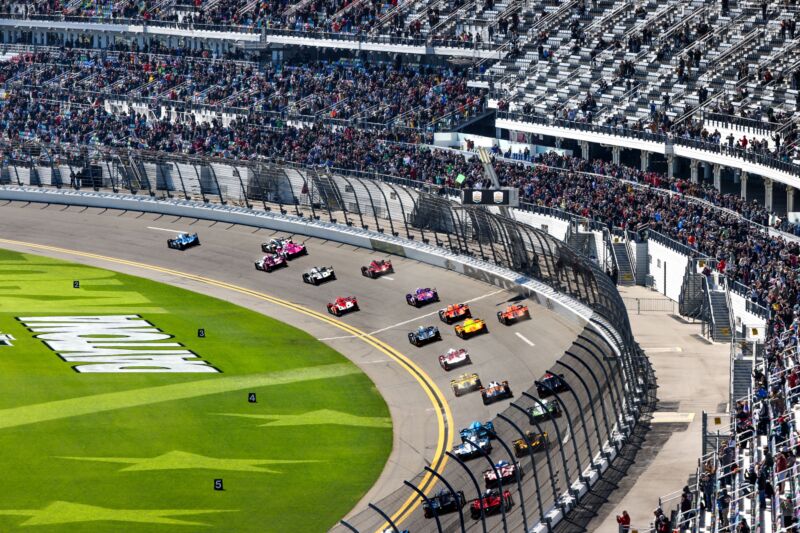
As is often the way with endurance racing, the 60th running of the Rolex 24 at Daytona turned into a sprint for the flag after a safety car intervened with less than an hour left on the clock. The Rolex 24 was the final Daytona 24-hour race for the DPi category of prototypes, and the class put on a fine show over the weekend.
There were dozens of lead changes over the course of 24 hours, and any of the five Cadillac DPi-V.Rs and two Acura ARX-05s would have been plausible winners. But racing for 24 hours is not easy, and hour 13 took out two of the contenders: the No. 48 Action Express Racing Cadillac (which counted NASCAR legend Jimmie Johnson as one of its drivers) and the 301 Chip Ganassi Racing Cadillac (driven at the time by multiple-IndyCar champion Sebastien Bordais).
With less than eight hours remaining in the race, the second Chip Ganassi Cadillac had to spend time in the garage with a fuel pump problem. That left a four-way fight for the win between a pair of Cadillacs (the No. 5 JDC-Miller Motorsports car and No. 31 Action Express car) plus the pair of Acuras (the No. 10 Wayne Taylor Racing car and the No. 60 Meyer Shank Racing machine).
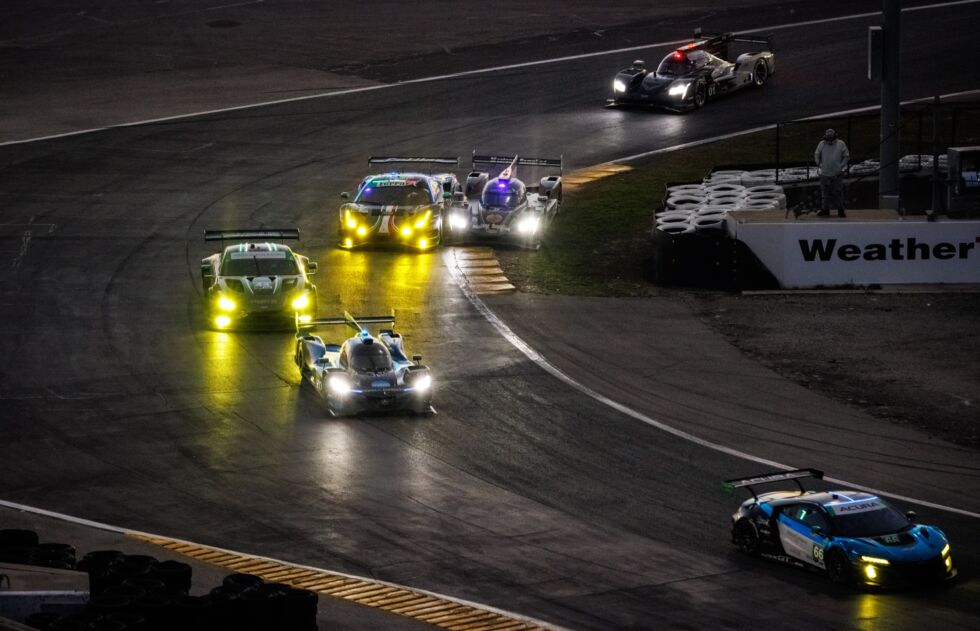
All four of those cars remained on the lead lap and took turns leading the race during the final four hours. Various fuel strategies played out, and the drivers negotiated the slower prototype and GT traffic. The final caution period reset everyone’s plans as all DPi cars used the opportunity to make a final pit stop. From there till the end, each ran hard instead of saving fuel.
In the end, the race was an Acura 1-2. The No. 60 car of Helio Castroneves, Simon Pagenaud, Oliver Jarvis, and Tom Blomqvist took victory ahead of the multiple-Rolex 24-winning No. 10 car of Ricky Taylor, Filipe Albuquerque, Will Stevens, and Alexander Rossi. The No. 5 Cadillac of Loic Duval, Tristan Vautier, Richard Westbrook, and Ben Keating came in third.
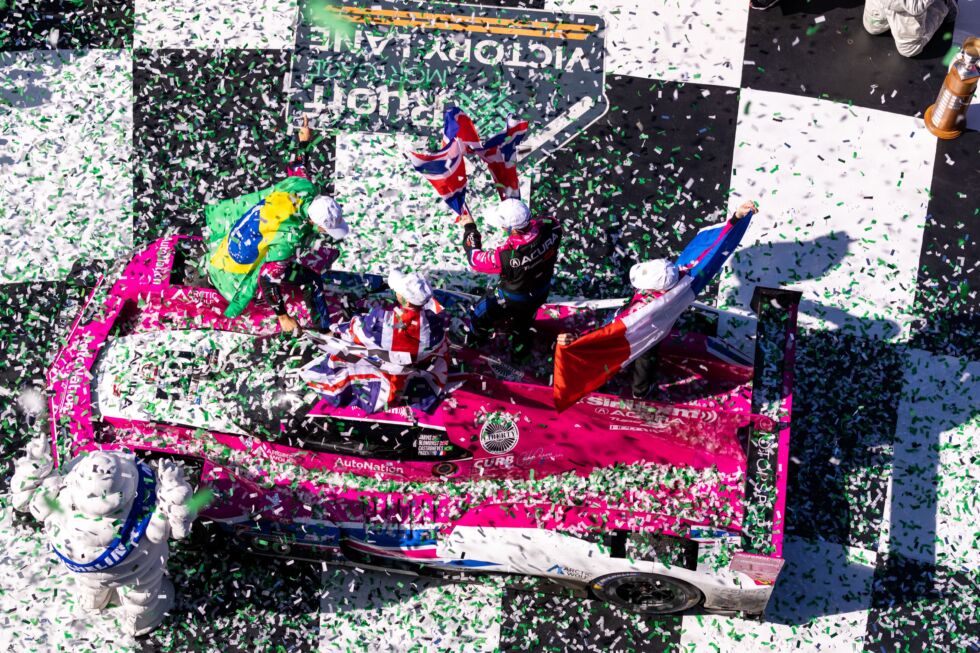
“Just very happy, very proud of the entire team, quite frankly. It’s my first race with Meyer Shank Racing. But if you look closely at what happened today, the strategy was just fantastic, fantastic. Every stop, I believe, we were the fastest on pit lane. I haven’t seen the numbers, but I can guarantee you we were,” Pagenaud said after the race.
“And the guys did a great job in the pits, no mistakes,” he added. “Execution was amazing. But first and foremost was the strategy. We were able to save fuel and go longer than anyone. And the team, the strategy and Mike and Ryan, they set themselves up to make sure at the end we would put less fuel in the car, would take us less time to leapfrog everybody, basically, in the pits. And that’s exactly what happened.”
The win in the LMP2 class went to the No. 81 DragonSpeed Oreca, a bright orange-and-yellow machine (possibly visible from space) that had a hard fight with three other LMP2 cars until the end. All four finished on the same lap and within 12 seconds of each other.
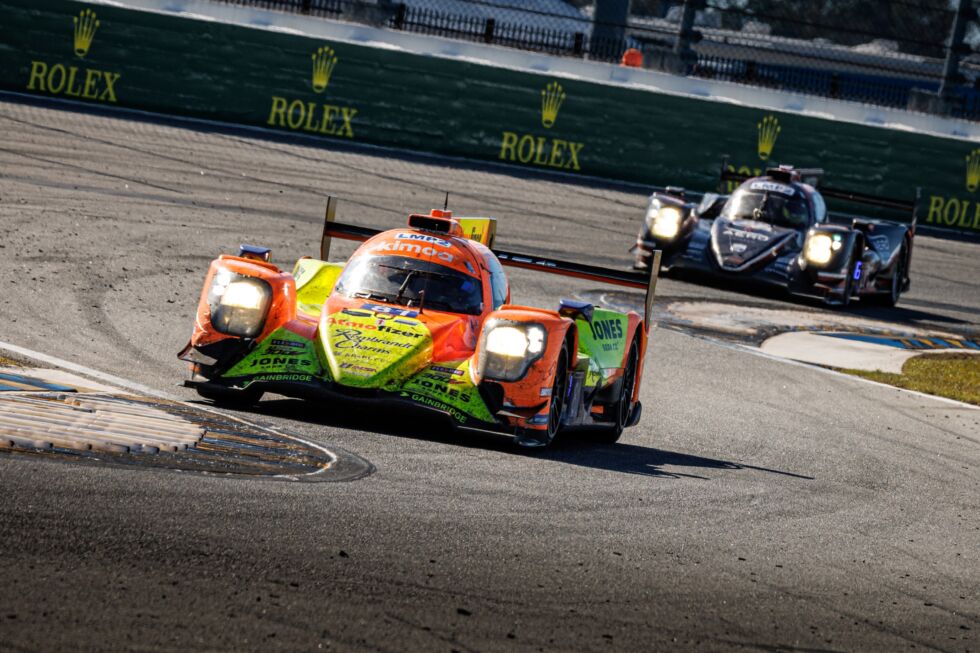
2022 was the first year for a new GTD Pro class for all-professional teams, replacing the GTLM class. GTD Pro’s debut went well, and this category also delivered a nail-biting final few minutes as the No. 9 Pfaff Motorsport Porsche 911 GT3R traded paint with the No. 2 KCMG Porsche. It seemed as if the KCMG car—driven at the time by Laurens Vanthoor, who won the race for Pfaff in 2021—had done enough. But Mathieu Jaminet in the Pfaff car made a robust challenge in the International Horseshoe corner and remained in front until the checkered flag waved. Jaminet’s car was also driven by Felipe Nasr and Matt Campbell.
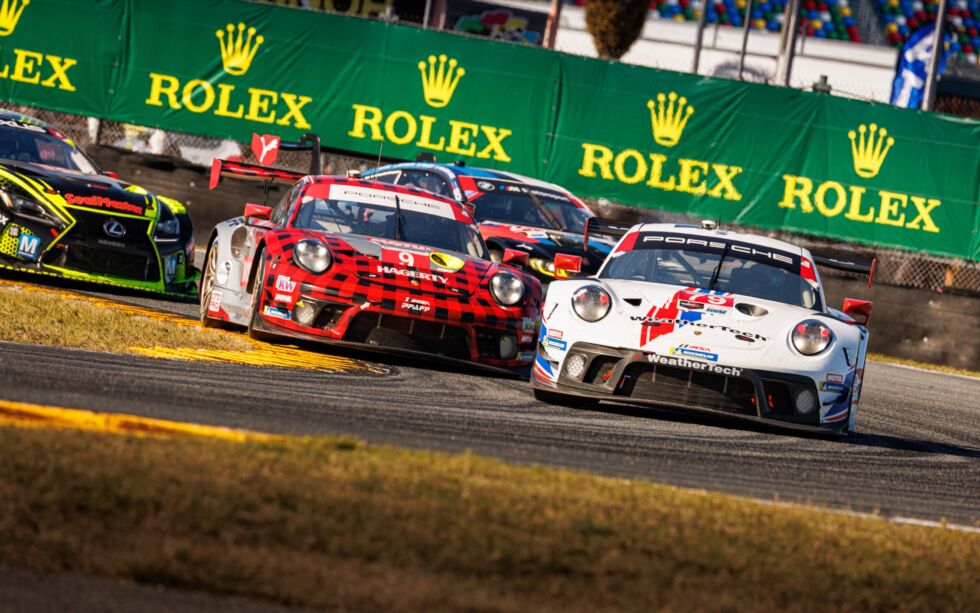
A Porsche 911 GT3R—the No. 16 Wright Motorsports car driven by Ryan Hardwick, Zacharie Robichon, Jan Heylen, and Richard Lietz—also won the pro-am GTD class. And the winners in the LMP3 category were Felipe Fraga, Michael Cooper, Kay van Berlo, and Gar Robinson in the 374 Riley Motorsports Ligier JS P320.
The next race for the series will be the 12 Hours of Sebring, which takes place in Florida in March.
https://arstechnica.com/?p=1830665

